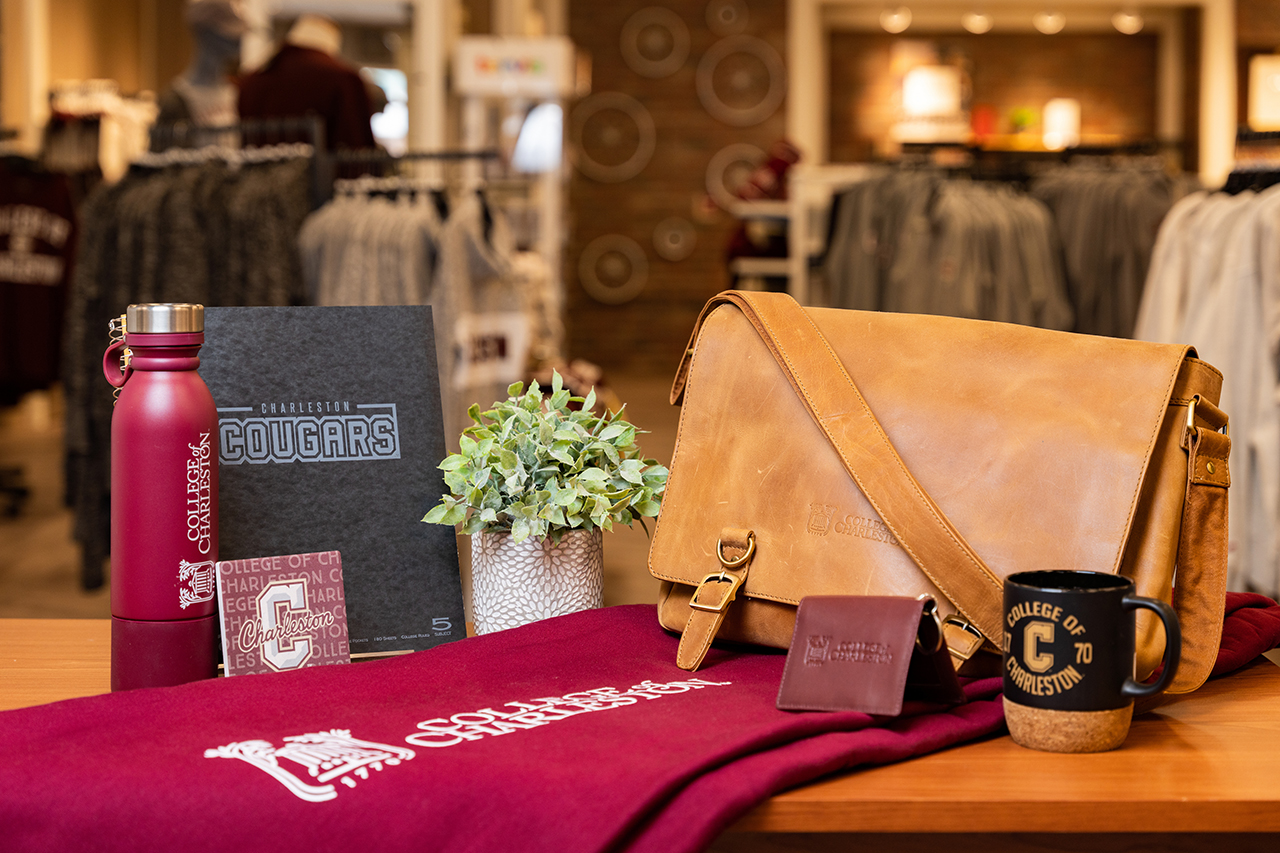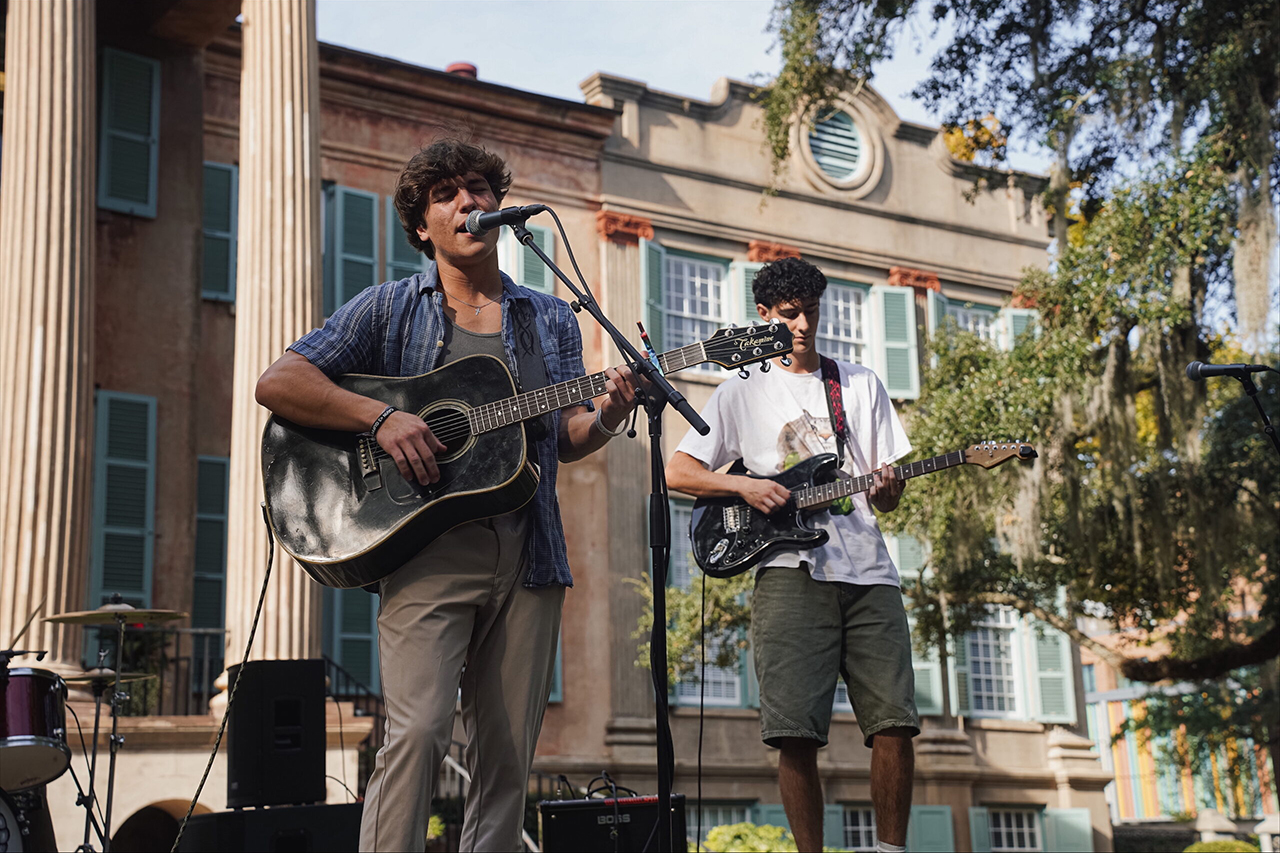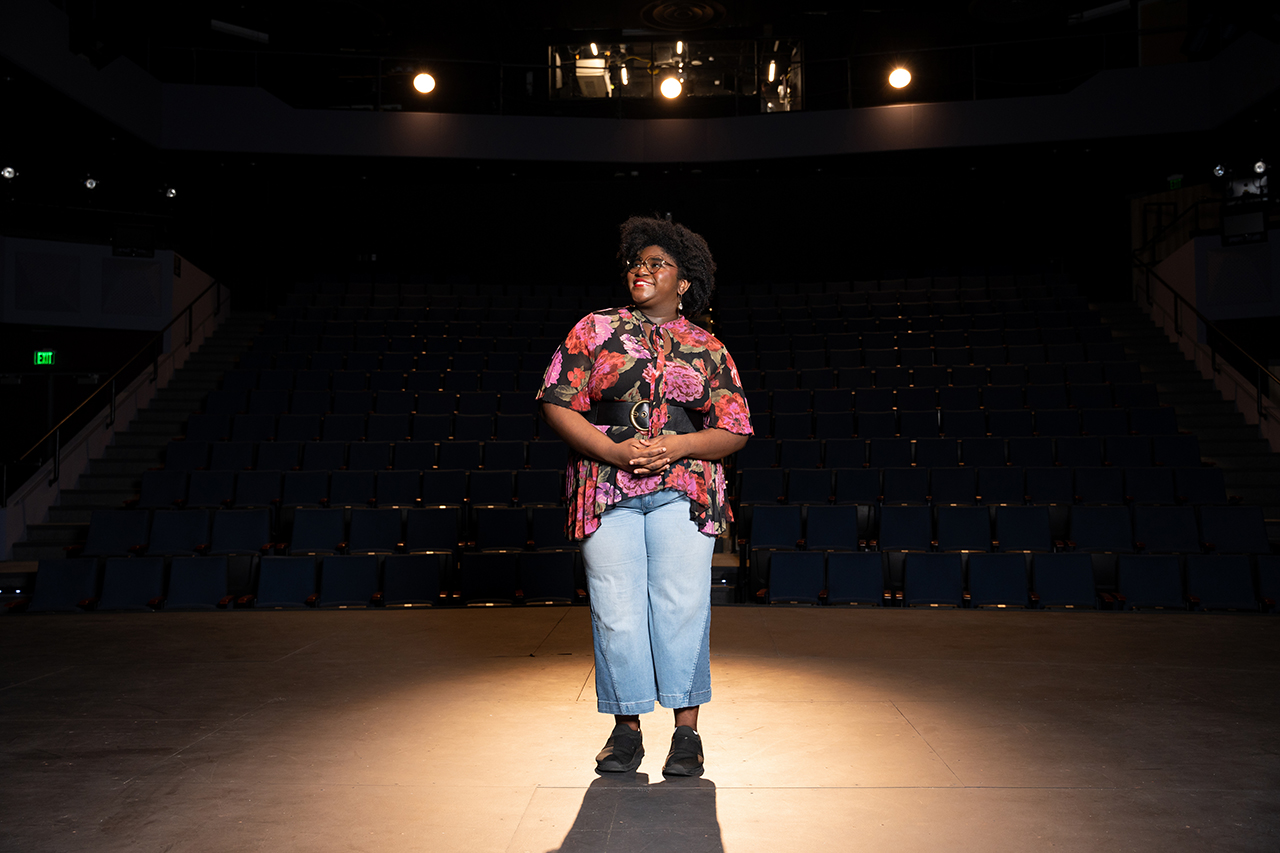Students Pedal with Purpose in FYE Cycling Course
Sylvie Baele ’15 (M.P.A./M.S. ’22) uses cycling to teach first-year students about sustainability, community and self-discovery.
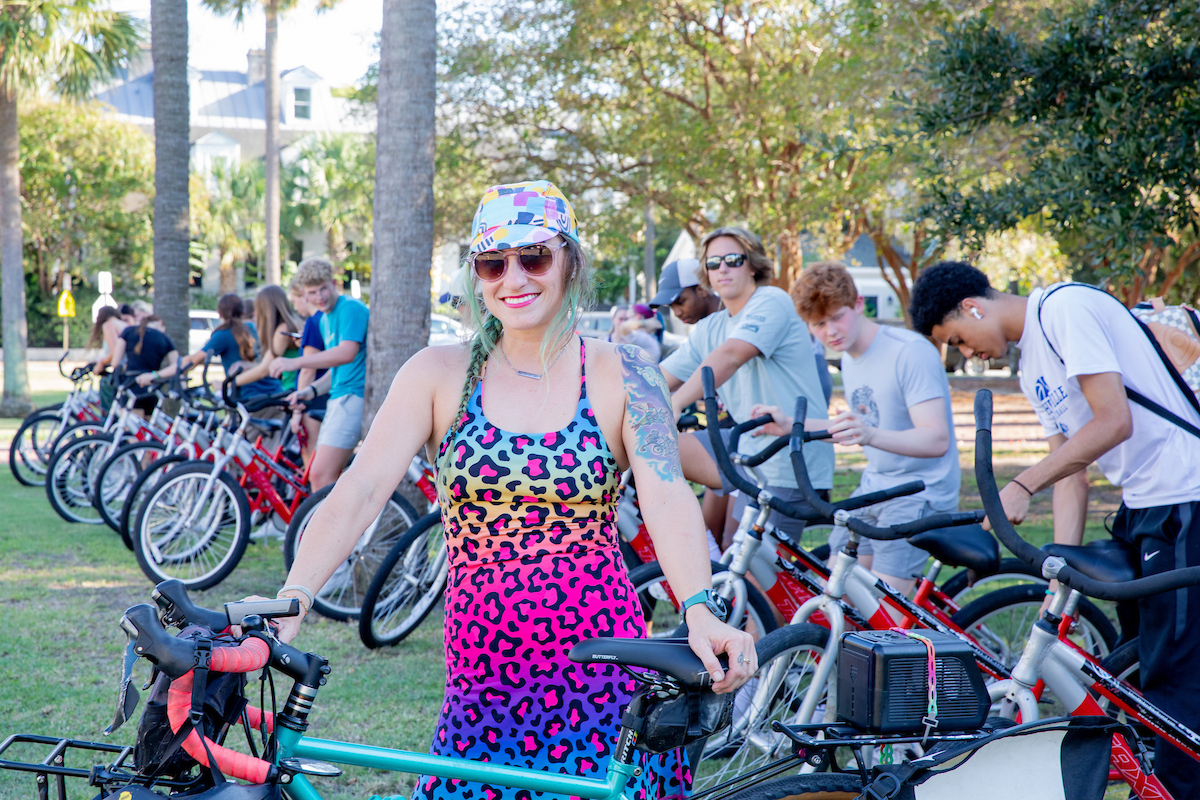
Above: Sylvie Baele with the students in her FYE class, as they prepare for a bike ride around downtown Charleston (photos by Lizzie Koschnick)
Sylvie Baele ’15 (M.P.A./M.S. ’22) found her place as an undergraduate student at the College of Charleston thanks to the cycling community. Now an adjunct faculty member in the College’s Environmental and Sustainability Studies Program, she wants to spread that same feeling of inclusivity to students in her First Year Experience course.
“That was how I found my community at the College,” she says, “and I wanted to be able to help students that were kind of like me: smart, capable, a lot of potential but having a hard time finding how they fit in.”
Baele’s course, Bicycles as Tools of Societal and Sustainable Evolution in the Lowcountry and Beyond, encapsulates the First Year Experience program, which introduces students to the academic and cultural environment at the College of Charleston and the greater Charleston community.
Through diverse interactive lessons that cover topics including intersectionality and sustainability, students engage in group discussions, illustrate concepts in creative ways, present research-backed arguments and comprehend peer-reviewed articles.
“There’s this stereotype that a cyclist is generally an upper-middle class, white, able-bodied male. I want to communicate to students that’s just not the case,” Baele says. “And understanding the diversity of cyclists can help inform decisions on infrastructure and public policy.”
Students in her FYE course have calculated their carbon footprint and learned about critical mass, a movement that promotes cycling as a method of urban transit, which the class experienced firsthand during a group bike ride.
“Biking is such a great way to explore downtown,” says Baele. “There are places that people who have lived here their whole lives, if they’ve never been on a bike, they’ve never seen, and it’s pretty cool to explore a new place by bike. I want the students to feel empowered to do that.”
Bicycles for Societal Change
Baele, who is also the executive director of local nonprofit Second Chance Bikes, graduated in 2015 and returned to the College in 2018 to complete the Combined Public Administration & Environmental and Sustainability Studies Program, earning both a master of public administration and master of environmental science.
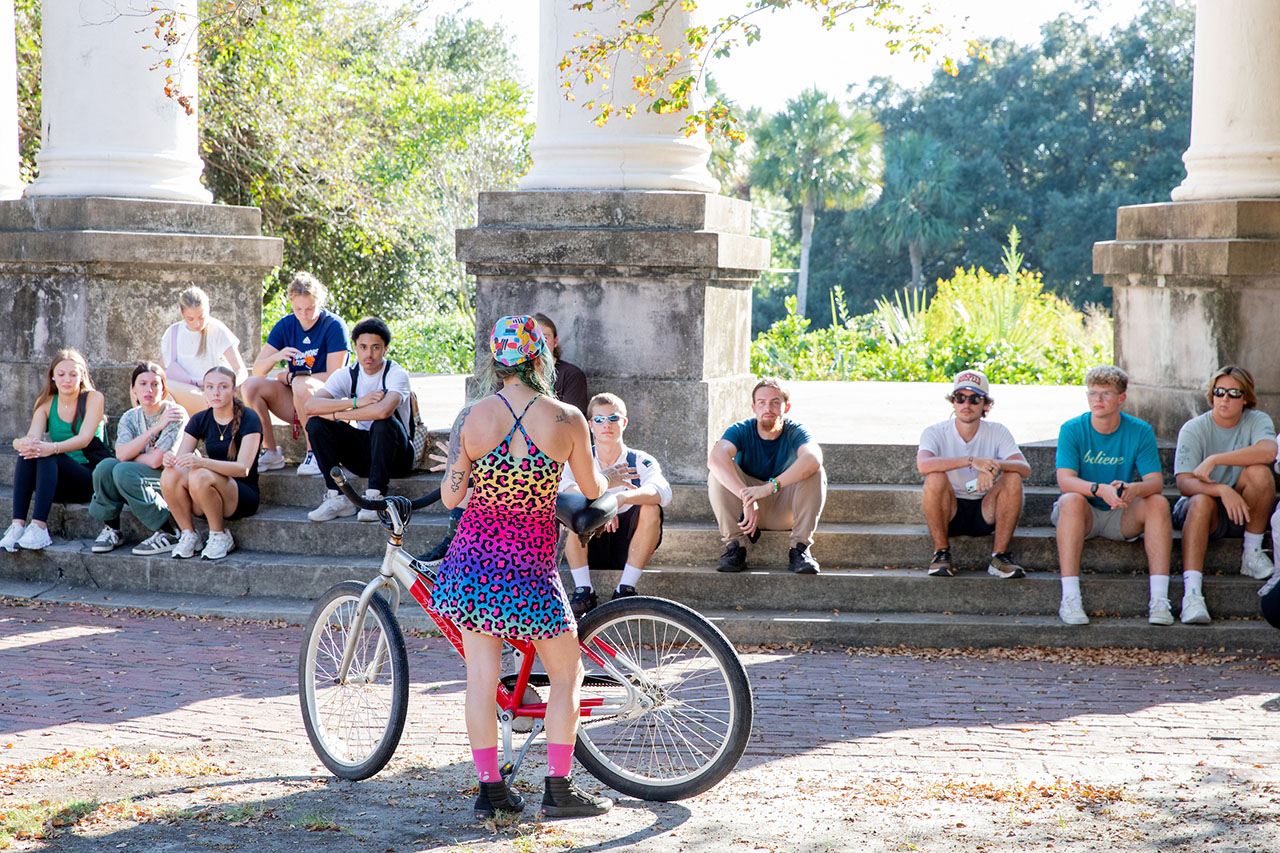
Through her personal experience, career and educational endeavors, Baele has witnessed the transformative power of cycling.
For her graduate program thesis, Baele investigated the impact of Second Chance’s Change a Tire, Change a Life program on temporarily unhoused people who participated. The program provides free bikes to people in need, allowing for inexpensive transportation to work, medical appointments and other vital services, as well as fostering independence.
Baele conducted in-person interviews with participants to find out how the bikes had changed their day-to-day lives. She expected the program to provide greater access to transportation, but she was surprised by some of the other reactions she heard.
“I think the general idea was, you give people a bike, and then they can get to work, make money, have a house, food, health care. But I found that a lot of them were really forward about the mental health benefits of the bikes,” she says. “They said things like, ‘I just feel more motivated to leave the house.’ Or, ‘Now I can go visit my friends that live on the other side of the neighborhood and get home quickly and safely.’”
Supporting Independence
Baele hopes students can experience similar feelings of confidence, independence and overall positive well-being as a result of learning more about cycling.
“That’s kind of the trick with bikes: People are intimidated, or they don’t want to, or they don’t think they can,” she says. “But once you get a person on a bike, and it’s a fun, safe experience, most people get hooked.”
Outside of covering larger concepts surrounding cycling like environmental impacts and intersectionality of social identities, students are learning basic bike maintenance, including how to check tire pressure and properly lock a bike, road safety and more.
“My goal is not for every student to fall in love with bikes and be like, ‘I’m going to be a bike commuter for the rest of my life.’ I just want maybe a few to try it, or to know that they can, and feel confident enough to take the first steps,” she says. “And for others to maybe have a little more tolerance when they’re driving around, and encourage them to share the road: That’s something I’m hoping for.”

